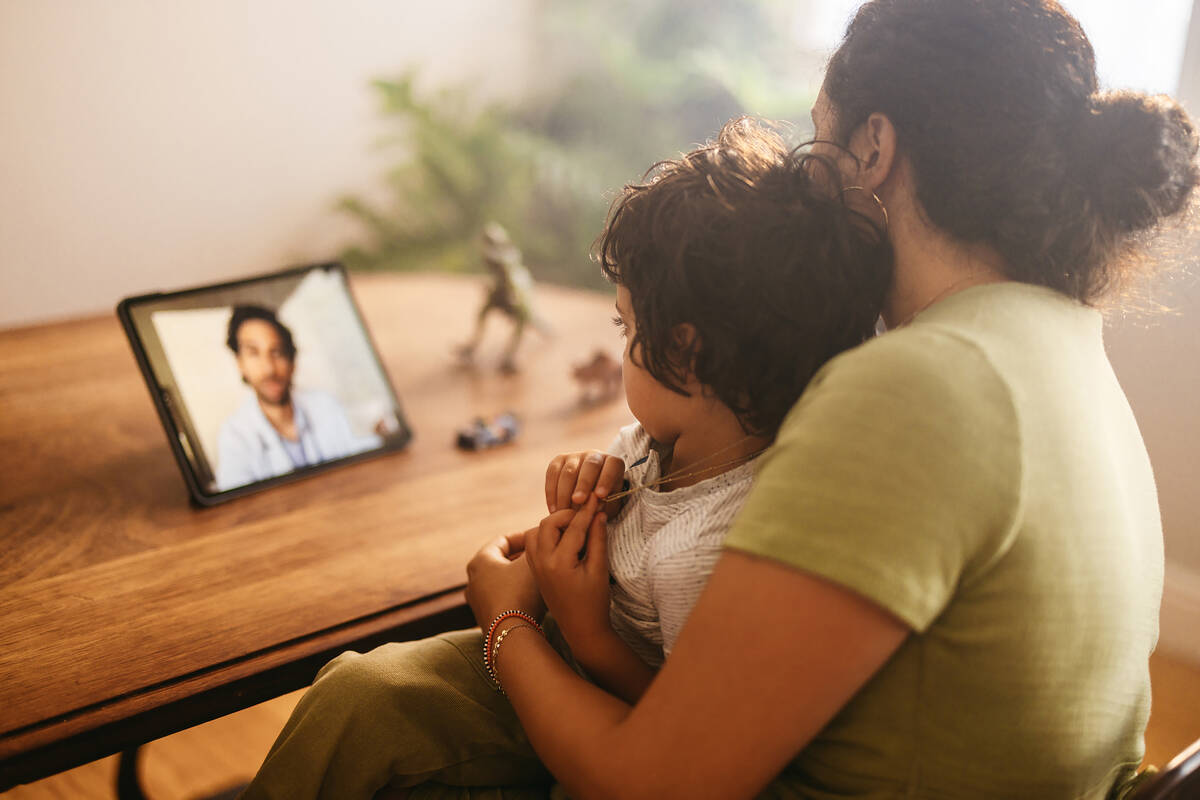Who is your family’s chief medical officer?
In every family, there’s often one person who takes charge of everybody’s health care needs. Who makes sure everyone gets an annual health exam. That they get their teeth cleaned and their prescriptions filled. And that all the insurance claims get filed.
If a child gets sick, this person stays home to care for them. And when an aging parent’s health fails, they take on their care as well.
Chances are, this person is a woman.
Studies suggest women — especially mothers — shoulder an estimated 80 percent of the family’s medical decision-making responsibilities. And federal survey data shows 1 in 4 caregivers are women, compared with 1 in 5 men.
Why women?
“I think women are the default caregivers in a family because they manage all the logistical and household things,” said Dr. Grace Lin, a professor of medicine and health policy at the University of California, San Francisco. “It is natural for medical decision-making to become part of that. It’s likely a holdover from societal expectations about what women are traditionally expected to manage.”
Women also use the health care system more than men, so they are more well-versed in navigating it, said Lindsey Miltenberger, chief advocacy officer for the Washington, D.C.-based nonprofit Society for Women’s Health Research.
“Regardless of the why, in today’s society, women are no doubt the chief medical officers in the family,” she said.
It takes a toll
Being chief medical officer does not come without cost. Studies show caregiving can affect a person’s physical and mental health. It can increase feelings of depression and anxiety and lead to women neglecting their own care.
“There’s a saying that you can’t pour from an empty cup,” Miltenberger said. “If women try to take on too much and try to go it alone, it can affect the people they are caring for and it can also take a toll on their own health.
“They don’t have as much time to exercise or follow a healthy diet or take care of their own relationships, all of which are important to a woman’s health,” she said. “Caregiving also can affect women in an economic sense because it can decrease their work hours or force them to take a leave of absence.”
Share decision-making
Over time, the burden of making health care decisions might gradually shift, said Lin, as health care professionals encourage greater shared decision-making with patients. Lin was co-author of a 2023 American Heart Association report that describes the benefits of this. The report encourages health care professionals to explain the full range of treatment options to a patient, taking into account the patient’s preferences and values, rather than dictating a course of treatment.
“Most things in medicine are not black and white,” she said. “There are different risks and benefits for different treatment options, and everybody values those differently.”
But Lin said shared decision-making can get complicated when the family is accustomed to deferring to a single person.
“I’ve seen situations where the woman is so used to this dynamic of making all the decisions that if I ask the patient their preference, they look to the caregiver to see if she disagrees,” Lin said.
Miltenberger said families need to have more conversations about how to share health care responsibilities so that one person isn’t carrying such a heavy load. Dads can take on more responsibility for taking children to the doctor, even if it’s mom who makes the appointments.
Sharing the load is especially important when helping an older family member, such as a parent, who might not be able to manage their own care, she said.
“They have to think through what’s needed and who can fill each role,” Miltenberger said. “They should think about how to utilize different family members’ strengths. A sibling who lives nearby may handle taking a parent to medical appointments, while one who is not local could manage making payments and reviewing insurance, things that can be done virtually.”
Younger family members should learn to begin taking responsibility for their own care, as well, Lin said. “We should be, from a young age, taking responsibility for our own health.”
The bottom line, Miltenberger said, is that women “don’t have to do all of this themselves.”
“They should feel empowered to ask for help from their families as well as friends,” she said. “Women need to know their limits and give themselves grace to recognize what they can handle without feeling burned out.”
Finding credible information
Regardless of who’s doing the looking, finding credible health information to make decisions can be a challenge. Searching online can turn up a lot of misinformation, so the best place to start is with a health care professional, Lin said.
“I try hard as a physician to direct my patients to good resources,” she said. While she may send a patient online for information, she’s careful about the sites she recommends.
“It can be hard to distinguish credible sources from poor ones on the internet,” Lin said. She recommends government sources such as the Centers for Disease Control and Prevention, the National Institutes of Health or sites associated with medical organizations because they have well-vetted information.
Miltenberger suggests people consider certain things before accepting what they find.
“See who the author is,” she said. “Does this person have something to gain? Was it fact-checked by a health professional? Who owns the site where the information lives? When was it written or updated? Make sure it is evidence-based information. Even if you find it online, it’s best to check with your doctor.”


















